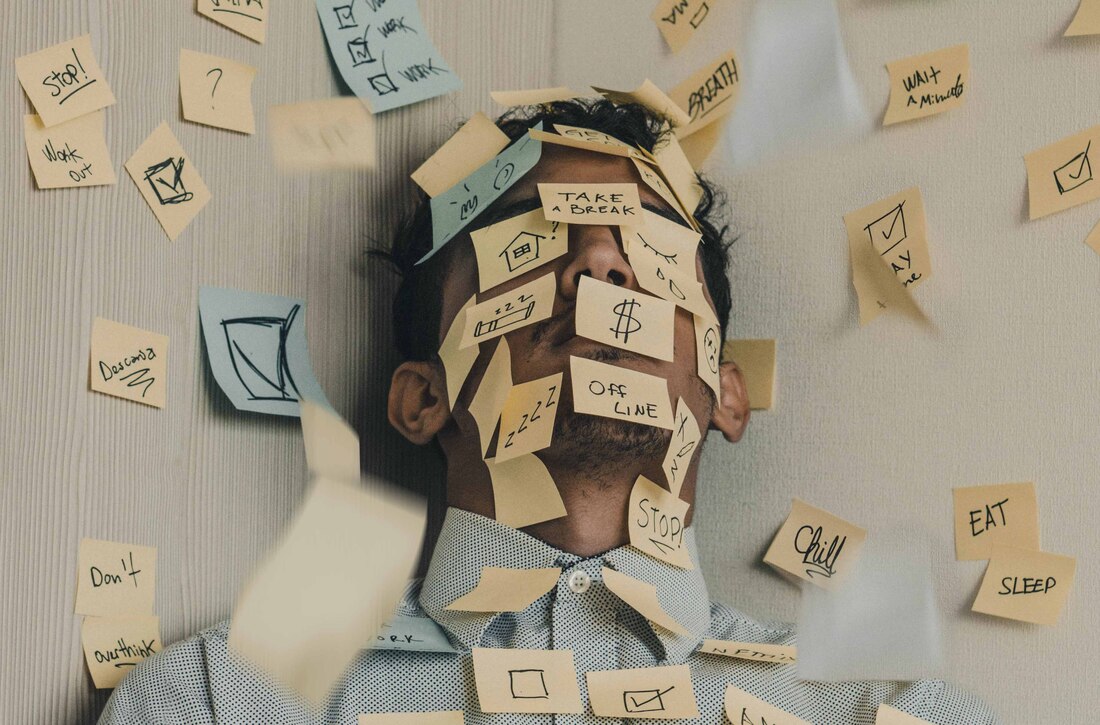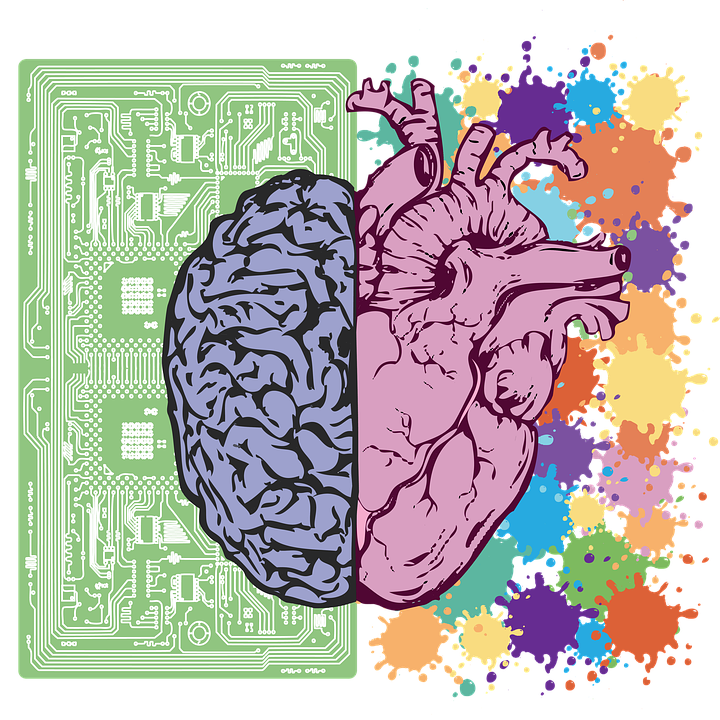|
Do you ever wonder what drives our actions? Why do we do the things we do? Behavior is a complex topic, and there are many different theories about what motivates us. In this blog post, we will discuss some of the most popular theories about behavior. We will also explore how these theories can be used to improve our lives both professionally and personally. So, if you're interested in learning more about the psychology of behavior, then keep reading!
One of the most popular theories about behavior is operant conditioning. This theory suggests that we learn new behaviors through reinforcement or punishment. For example, if we are rewarded for doing something, then we are more likely to do it again in the future. On the other hand, if we are punished for doing something, then we are less likely to do it again in the future. This theory can be used to explain a wide range of human behavior, from simple habits like brushing our teeth to more complex behaviors like going to work every day. Another popular theory is social learning theory. This theory suggests that we learn new behaviors by observing others and imitating their behavior. For example, if we see our parents brushing their teeth every day, then we are more likely to brush our teeth as well. This theory can be used to explain a wide range of human behavior, from simple habits like brushing our teeth to more complex behaviors like going to work every day. So, what do you think? What drives our actions? Do you think it is operant conditioning, social learning theory, or something else entirely? Let us know in the comments below!
0 Comments
The Relationship between Economic Stress and Behavior: How to Reduce Anxiety in Tough Times9/21/2022 The economy is constantly changing, and with it, the way we behave. In tough times, many people experience a great deal of anxiety and stress. This can lead to a variety of negative behaviors, including drug abuse, violence, and even suicide. However, there are ways to reduce this anxiety and stress. In this blog post, we will discuss the relationship between economic stress and behavior, as well as some methods for reducing anxiety in tough times.
If you or someone you know is struggling with economic stress, please reach out to a counselor or therapist. They can help you develop healthy coping mechanisms and work through this difficult time. What are some of the ways that economic stress has impacted your behavior? How have you coped with this stress? The first step in addressing any behavior is identifying what it is to begin with, and addressing the root causes. The economy is constantly changing, and with it, the way we behave. In tough times, many people experience a great deal of anxiety and stress. This can lead to a variety of negative behaviors, including drug abuse, violence, and even suicide. Some of the ways that economic stress can impact behavior are as follows: -Spending more time worrying about money and financial situation -Increase in irritability and short-temper with those around you. -Struggling to concentrate at work and decrease in productivity. -Turning to food and drink as a way to cope with stress Coping skills for managing economic stress can include the following: -Talking to a partner or family about worries and concerns. -Make a budget and stick to it. -Exercise regularly. -Talk to a therapist. -Remember the economy fluctuates, and there will be an upturn. Resources: -If you or someone you know is struggling with economic stress, please reach out to a counselor or therapist. They can help you develop healthy coping mechanisms and work through this difficult time. -The National Suicide Prevention Lifeline provides 24/seven, free and confidential support for people in distress, prevention and crisis resources for loved ones, and best practices for professionals. -The National Alliance on Mental Illness (NAMI) Helpline is a free, confidential and staffed by trained volunteers who understand mental illness from their own lived experience. The NAMI Helpline can be reached Monday through Friday, from -SAMHSA’s National Helpline is a free, confidential, 24/seven, 365-day-a-year treatment referral and information service (in English and Spanish) for individuals and families facing mental and/or substance use disorders. Mental health is just as important as physical health, but unfortunately, it can be a lot harder to talk about. If you're new to mental health treatment, the process of starting therapy may seem daunting. It's important to remember that you are not alone in this. Thousands of people each year seek help for their mental health and there is no shame in doing so. In this blog post, we will provide a guide for those who are new to therapy and seeking help for their mental health.
The first step is finding a therapist that you trust. This may take some time and research, but it will be worth it in the long run. Once you've found a therapist, the next step is to schedule an appointment. Many therapists offer free initial consultations, so take advantage of this if you can. During your first session, your therapist will likely ask you a lot of questions about your symptoms, thoughts, and feelings. It is important to be as honest as possible during this conversation so that your therapist can best help you. If you would like to schedule a free consultation you can email us at [email protected] If you're feeling nervous about starting therapy, remember that it is a process that takes time. Trust is built over time and it may take a few sessions to feel comfortable opening up to your therapist. However, know that the first step is always the hardest and it will get easier with time. Our mental health should be a priority and there is no shame in seeking professional help. If you or someone you know is struggling, please reach out for help. If you are experiencing a mental health crisis, please call the National Suicide Prevention Lifeline at 800-273-TALK (800-273-8225) or visit their website at suicidepreventionlifeline.org. For more information on mental health and treatment options, please visit the National Alliance on Mental Illness (NAMI) website at nami.org. Thank you for reading. We hope that this guide has been helpful in beginning your journey to mental health treatment. Remember, you are not alone and help is available. Seek professional help if you are struggling and please reach out if you or someone you know is in crisis. Together, we can break the stigma surrounding mental health and create a more open and understanding world. It's no secret that we all want to change our behavior at some point in time. Whether it's quitting smoking, eating healthier, or getting more exercise, most of us have made (and failed) at resolutions to change our behavior. Why is it so hard to change? And what works when it comes to behavior change? In this blog post, we'll take a look at the science of behavior change and discuss what works and what doesn't.
It turns out that there are a number of factors that contribute to whether or not we're successful at changing our behavior. One of the most important is what psychologists call "self-efficacy." This refers to our belief in our ability to actually carry out the behavior change. If we don't believe we can do it, we're much less likely to be successful. The same goes for when we are trying to encourage someone to make a positive behavior change! If we don't believe they can do it, they are less likely to make the necessary changes. Another important factor is what's called "reinforcement." This refers to whether or not we're getting positive reinforcement for the new behavior (such as compliments from others or a sense of satisfaction) or negative reinforcement (such as avoiding punishment). Studies have shown that positive reinforcement is much more effective in leading to long-term behavior change than negative reinforcement. Finally, another important factor is what's called "habit formation." This refers to how likely we are to stick with the new behavior over time. Studies have shown that it takes most people about 66 days to form a new habit. So if you're trying to change your behavior, don't get discouraged if you don't see results immediately. Keep at it, and eventually it will become second nature. If you're interested in learning more about the science of behavior change, check out the resources below. And if you're looking to make a change in your own life, remember to focus on self-efficacy, positive reinforcement, and habit formation. With a little effort, you can be successful at changing your behavior for good. Resources: -The Psychology of Self-Efficacy by Albert Bandura -Reinforcement Theory by B.F. Skinner -How to Form New Habits by James Clear Thanks for reading! I hope this was helpful in understanding the science of behavior change. If you have any questions or comments, please leave them below. And if you're looking for more resources on this topic, check out the links above or email us. Living with trauma is a difficult and painful reality for many. Past experiences, while very influential, do not need to define the future however. Paving your path forward is not always easy to do on your own. If you live with trauma that seems to overpower your life’s course, working with a trauma counselor can make all the difference.
Trauma therapy has been used by many to cope with the harsh realities they might have lived through. Trauma therapists use proven approaches to help individuals process traumatic events that have occurred in their life, as well as their emotional and behavioral responses. This type of therapy helps change lives by providing individuals with strategies to process and handle memories that are directly related to traumatic events. If you have experienced Why Group Therapy is a Good IdeaGroup therapy can be a little intimidating if you haven’t been a part of a group therapy session before, or if you imagine that “group therapy” just means “sitting in a circle with a bunch of strangers.” The truth is, group therapy is an incredibly rewarding form of therapy.
Check out these four benefits of group therapy with Sample Therapy, and chances are you will feel a little more open about joining a group! What Is Cognitive Behavioral Therapy?Cognitive Behavioral Therapy (CBT) is a form of talk therapy (psychotherapy) based on the idea that our thoughts, beliefs, and attitudes cause our feelings and behaviors. CBT focuses on specific problems identified by the client and employs a solution based and goal-oriented approach to reshape these thoughts, beliefs, and attitudes.
Readily applicable techniques and concepts are the foundation for the answer to, “what is cognitive behavioral therapy?” and are taught during each session. The therapist shows the client how to achieve results rather than telling him or her what to do. CBT focuses on targeted solutions and requires the client to actively participate in challenging his or her distorted cognitions. Clients are given homework assignments based on specific tasks to help them change their destructive behaviors through repetition and implementation of techniques in their daily life. CBT’s popularity stems from its aim to produce clear, measurable change in thoughts and behaviors. CBT is a short term therapy, with a duration ranging from about 5 to 20 sessions, making it attractive to those who feel they don’t have the time or finances to invest in longer types of therapy. In addition, it is considered one of the most rapid types of therapies in terms of producing results. The Importance of Processing TraumaIn the National Comorbidity Survey, a research study of 9,282 Americans aged 18 to 54, 60% of men and 51% of women in the United States had experienced at least one traumatic event in their lives. With these types of statistics plus highly publicized traumatic stress disorders such as PTSD, it’s no surprise that there has been extensive research and development on techniques revolving around the importance of processing trauma.
What Happens after Your First DUI Offense?After the initial shock wears off, a DUI conviction leaves you facing a complicated set of instructions for getting your life back. When asking yourself, “what happens for your first DUI offense?” there are a handful of key factors you need to understand. Specifically, you will be facing a mandatory sentence and punishments ordered by the court. You will also need to understand the nature of a DUI charge and the long-term consequences of a DUI conviction.
Should I Go to Counseling?How working with a professional therapist could benefit your well-beingWe all know the benefits physical exercise has on our health. Our energy is increased, our risk of disease is lessened, and we can even prolong our lives. Society’s positive portrayal of those who are physically fit and in good health has made it acceptable to openly work on and improve our physical fitness. But what about mental fitness? We know that being in good mental shape and possessing qualities like resilience, self confidence, open mindedness, and adaptability are positive traits, yet our society is just now starting to accept that the workouts employed to get there are not something to be ashamed of. If you have ever asked yourself, “should I go to counseling?” the answer is likely yes - there is no good reason to let fear of stigma keep you from working on your mental health just like you would your physical.
|
Private Practice Therapy Services in Downtown Longmont
|
|
606 Mountain View Ave.
Longmont, CO 80501 Street Parking Available |
© COPYRIGHT 2018. ALL RIGHTS RESERVED.










 RSS Feed
RSS Feed
